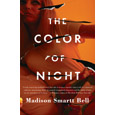How to Succeed at Being You
Jami Attenberg’s All Grown Up is a funny book with a serious point
At first, “you” are the narrator of Jami Attenberg’s simultaneously caustic and tender novel All Grown Up. “You’re in art school, you hate it, you drop out, you move to New York City,” the story begins. “You” get an apartment and a job. “You don’t hate the job and you don’t love the job, but you can’t sniff at a hard day’s work because you are no better than anyone else, and, in some ways, you are much, much worse.”

Jay McInerney made glib second-person narration work in Bright Lights Big City (though a New York Times review did complain that “all the ‘you’s’ pile up into a jangled heap of grammatical contortions”). And in Then We Came to the End, Joshua Ferris managed to write a long and consistently funny novel about the advertising business in first-person plural. “We were fractious and overpaid,” it begins. “At least those of us who smoked had something to look forward to at ten-fifteen.”
But in Attenberg’s novel, you’re ready to shed the uncomfortable narration when protagonist Andrea Bern starts to draw pictures of the Empire State Building every day, in the process discovering that she is “not not talented.” By this point, you’d really like for Andrea to tell her story without pressing “you” into service.
Fortunately, after that first chapter, Attenberg switches to first person and you, the reader, are immersed in the vivid and lusty life of a character who, though she’s mostly sad or anxious or angry, is also very funny. A man she meets online asks if she has read an annoying book about being single that everyone seems to be reading, and she asks him the same question. “And he says, ‘No, I don’t read a lot,’ and I think, Quelle surprise.” When she’s buying a baby gift for the child of her best friend, Andrea chooses Shel Silverstein’s The Giving Tree, “a dire story about a selfish child sucking the life out of an enabling tree.” She knows her boss would like to be rid of her, “and yet the thought of hiring someone new to do a job I have done extremely well for a decade troubles him. How would he remove everything in my brain and put it in someone else’s?”
Andrea can’t wholly commit to her job, and her connections with men are hookups instead of relationships. As the years pass, she becomes inured to losing contact with friends who get married and then pregnant. Her un-analyzed conflict about babies is poignant because her beloved brother and sister-in-law are caring for their own dying child.
The loop Andrea’s stuck in has its origin in a family trauma. Her charismatic but drug-addicted father died of an overdose while she was a teenager, leaving the family nearly destitute. Though art was the talent that gave her solace, Andrea is too distracted by sex, alcohol, drugs, and insecurity to pursue it. Her brother, a musician who’s above compromising for fame or money, depends on his saintly wife, Greta, for support. And Greta also rescues Andrea, a favor Andrea has trouble returning.
 All of which might be heavy lifting if it weren’t for Attenberg’s wicked wit and ability to locate the absurdity in day-to-day existence. Love of food had a devastating effect on a character in Attenberg’s 2012 novel, The Middlesteins, but for All Grown Up’s Andrea, food is the perfect way to deflect difficult emotional issues: “I can’t stand when a meal is ruined,” she says to a longtime friend and current lover who wants to talk about his money troubles over dinner. “I have slept with many men, don’t ask me their names, but I can’t eat anything casually.”
All of which might be heavy lifting if it weren’t for Attenberg’s wicked wit and ability to locate the absurdity in day-to-day existence. Love of food had a devastating effect on a character in Attenberg’s 2012 novel, The Middlesteins, but for All Grown Up’s Andrea, food is the perfect way to deflect difficult emotional issues: “I can’t stand when a meal is ruined,” she says to a longtime friend and current lover who wants to talk about his money troubles over dinner. “I have slept with many men, don’t ask me their names, but I can’t eat anything casually.”
Attenberg’s fluid deployment of words provides a lot of the pleasure in All Grown Up. At a funeral for a woman named Betsy, a friend and fellow activist of Andrea’s mother, all three of the deceased woman’s spouses are speakers. The first is a man “with the intensity of a squirrel,” Andrea observes:
A speech follows regarding the CIA, conspiracies, corruption, assassinations, various presidents, the contemporary state of activism, spy technology, Facebook, and Betsy’s grit and determination to help this speaker reveal the truth, which is still being revealed, will always be being revealed, look around now, keep your eyes open, wake up and stay awake.
A large cast of concisely drawn characters occupies this compact book. And while you will find plenty of reasons to laugh, you’ll also find a serious primer on resisting the pressure to conform while you’re taking the time to figure out who you are.

Peggy Burch was books editor at The Commercial Appeal in Memphis for ten years, and she also worked as a deputy metro editor and Arts & Entertainment editor for the newspaper. She is a graduate of the Newhouse School of Public Communications at Syracuse University and holds a master’s degree in English literature from the University of Mississippi.


